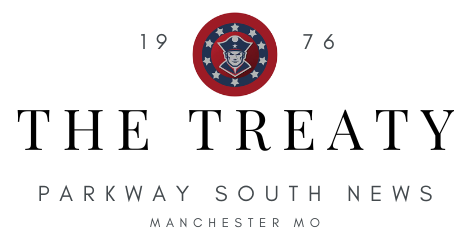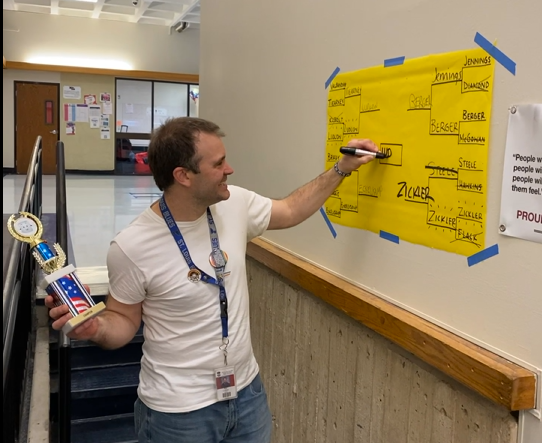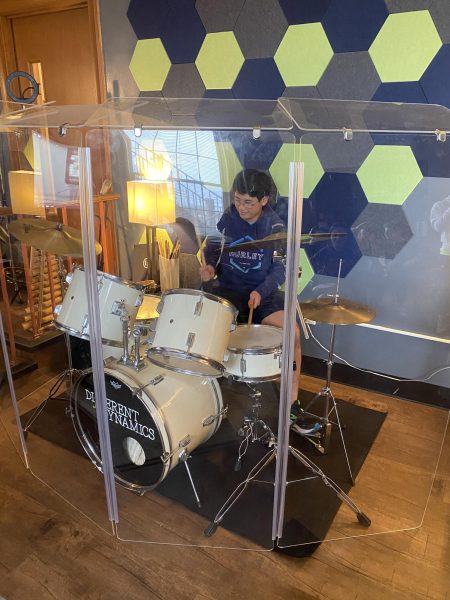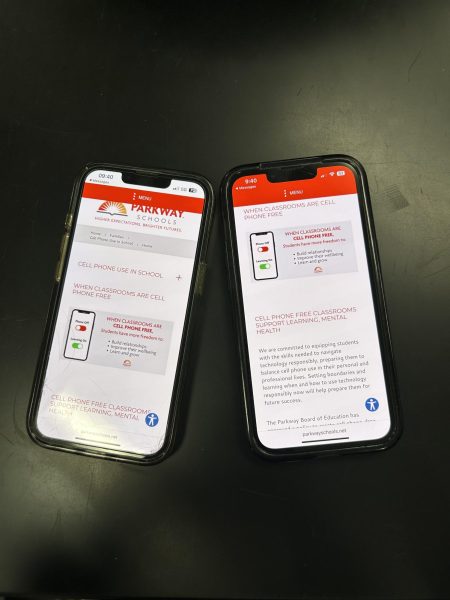New food protocol
New regulations for sharing food
In an attempt to protect students with allergies, Parkway is implementing a new food safety protocol which places limits on food sharing in schools.
Recently an email was sent out to all teachers and staff at Parkway South High School that detailed the new regulations. In the past years at Parkway South, teachers have been able to have “ac.lab parties” which allow the students to bring in foods and drinks to share with the rest of the class. Starting this year South will no longer be able to do such things. According to Principal Patrice Aitch, these rules are being put in place to “make sure that all kids, especially those with allergies, are as safe as possible at school.” This protocol is District-wide, not just at Parkway South. The Parkway District has high hopes that this protocol will reduce the risk of students having allergic reactions and going into anaphylactic shock.
Within the protocol it states, “Classrooms should be food-free whenever possible. Consumption of food in the classroom is strongly discouraged due to allergy and sanitation concerns.” There are some exceptions that include a child on an individual medical health plan, like diabetes. Another exception would be if it is necessary for the student to have a snack between meals, they are allowed to bring a healthy snack, but the snack must be for themselves and is not to be shared. A second rule stated in the protocol is that, “no food will be brought from home for sharing class-wide.” This saying, if a student brings food from home they are not allowed to share with others in the classroom, but they are allowed to bring it for personal consumption.
Two big issues that have come up are the Senior Picnic and Senior Brunch. A lot of students are concerned that this new protocol will mean no Senior Brunch and Picnic, but Parkway South will still be having both of those things. Aitch said the school will be taking precautions when it comes to picking out the food that will be provided, making sure even those with allergies get something they like, but still making sure everyone is safe. A third thing everyone is worried about is the Renaissance dessert bar. Aitch said “we don’t know yet whether or not we will be doing the dessert bar, and we need to figure out what students might want as a reward instead of food.” One big thing that will be different is what Student Council and Renaissance will be able to do starting this year and throughout the following years. In previous years, Renaissance Club has given out bags of popcorn in the commons during lunch time; this year and in years to come they will no longer be able to do this.
A PowerPoint made by the Director of Health Services, Robin Wallin, tried to educate the principals and other staff at schools on allergies and what to do when someone has an allergic reaction during class. This presentation stated that 25 percent of severe food allergic reactions that happen at school happen to students who had no previously known allergies. Knowing this, it is important that both staff and students know what to do when the situation occurs. As a teacher, if you suspect an allergic reaction or anaphylaxis, you should call the nurse or an administrator as soon as possible. If you need to send the student to the nurse, you should not send them alone. Always send another student with them to ensure they get to the nurse safely. The recommended first-line treatment for anaphylaxis (a severe life-threatening allergic reaction) is the use of an injectable medication called epinephrine, called an epipen for short.
South nurse Laura Salivar, said that about 70 kids just at Parkway South have food allergies or peanut allergies. Every year a few kids have allergic reactions and go to the nurse, but none of them have been severe enough to where she needs to use their epipen. Some of the kids that come in sometimes don’t even know that they were allergic to anything.
She gave the example of a girl who had a peanut allergy and didn’t know that sesame seeds were a part of that family and had an allergic reaction. Nurse Salivar knew to give her Benadryl and the girl ended up being fine. A somewhat big change for Salivar is that she no longer can give out as many snacks as she has in previous years. She used to have fruit snacks, juice boxes, and other sorts of food that she could give to students if they were hungry or had a stomach ache, but now she only gives out crackers to students that complain of a stomach ache. For kids with, let’s say, diabetes, she can still give them what they need to regulate their blood sugar, but she is still limited with what she can give out. Salivar fully backs this new protocol and thinks it is a very good idea. She does agree that it will be a big change for not only students but for teachers. Especially for teachers that regularly would have academic lab parties; but it is also a very important change to be made.






